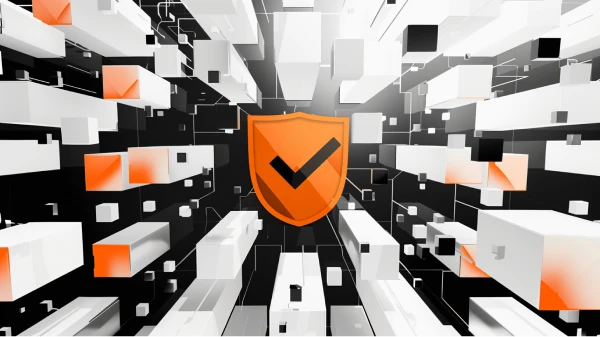Investing in Bitcoin can be nerve-racking if you’re still new. Is Bitcoin safe? What about the blockchain and Bitcoin wallets? How can users protect themselves and what are the risks to be aware of?
These are very normal questions to ask and important ones to dive into.
Bitcoin is Safe, But Humans Are Fallible
The Bitcoin network is robust against both failures and attacks. The blockchain itself is economically and technically impervious to corruption.
Billions of dollars have been invested in bitcoin. If it was not safe, this money would be stolen and bitcoin would never have made it to a trillion-dollar asset.
The issue of safety on the Bitcoin blockchain has less to do with its technical implementation and much more to do with unsafe user practices and incomplete or incorrect conceptions about what Bitcoin is. It is for this reason that we prioritize creating and delivering high-quality educational materials—we want to make sure that bitcoiners are able to make the best choices possible.
How Secure Is the Bitcoin Network?
Bitcoin is both a blockchain database and a network of computers that communicate to build and update the database. With this in mind, the blockchain database has never been hacked.
This article will focus on the security of individuals and their bitcoin, rather than the broader security of the network. If you are interested in the security of Bitcoin as a system, you can read our article on the topic using the link below.
➤ Learn more about the security of the Bitcoin network.
Individual users can make mistakes that can cost them their bitcoin due to negligence or forgetfulness. Malicious actors can also take advantage of users in order to steal their bitcoin. They do so not through any vulnerability of Bitcoin itself, but through traditional hacking and other fraudulent methods. Either case can result in a total and irreversible loss of user funds.
Individual Bitcoin User Mistakes
The most common way for Bitcoin users to lose their bitcoin is not through a hack but through human error.
When you use a Bitcoin wallet, your bitcoin is not stored directly in the wallet. Instead, your wallet holds the private keys that control your bitcoin. Anyone who can access your private keys can spend your bitcoin. At the same time, if you lose access to your private keys, you will be unable to spend your bitcoin. For this reason, keeping backups of your private keys is vital.
Thanks to industry standards such as seed phrases, also called mnemonic recovery phrases, Bitcoin users can keep track of a virtually limitless number of keys with a single set of 12-24 words.
➤ Learn more about about how Bitcoin wallets work.
Hackers Are Phishing for Your Bitcoin
Another way users can lose bitcoin is through social engineering attacks. A social engineering attack focuses on convincing a victim to willingly divulge information to the hacker, which can then be used to steal their bitcoin. For example, an attacker might call, email, or direct message a victim pretending to be an employee of their wallet provider and convince the victim to divulge their password or seed phrase.
Bitcoin Theft
The risk of losing your bitcoin to a personal hack is far lower than forgetting or losing your own password or recovery phrase. However, guarding against hackers and other attacks is important.
Most individuals use a computer or mobile device to store their bitcoin. Any device that is connected to the internet can possibly be hacked. If a computer containing a Bitcoin wallet is hacked, a user could be at risk of losing their bitcoin. Wallets have various security features, such as encryption, meant to protect against a computer hack, but nothing is impenetrable.
Activities such as pirating movies, browsing unsafe websites, and downloading unknown files can all function as an entry point for a hacker to access a computer, and ultimately the bitcoin stored on that computer. Bitcoin can be stored on an offline computer to minimize these risks. This is called cold storage, and is a strong security practice.
Selecting a high-quality wallet is an important step in protecting privacy and wealth. Remember, wallet software helps users maintain their private keys—which control access to user bitcoin—so obtaining the wallet from a trusted source is imperative.
➤ Learn more about about how to choose the right Bitcoin wallet.
Bitcoin Brokerage and Exchange Security
Exchanges and brokerages such as River are institutions designed to facilitate trades and organize order books. However, Bitcoin enables peer-to-peer transactions, meaning anyone can facilitate or operate an exchange or directly exchange bitcoin with anyone else. This means quality and security can vary greatly between exchanges. Therefore, individuals ought to be critical and highly selective when choosing an exchange.
Behind an exchange’s website are wallets holding any bitcoin users have deposited. Unlike users, who can disconnect their wallet from the internet, exchanges are forced to keep some bitcoin in hot wallets in order to service user withdrawal requests. Having a bitcoin wallet directly exposed to the internet is a security concern, so exchanges must diligently protect their security. Exchange wallets have been hacked on many occasions, exposing users to enormous losses.
Some exchanges have partial insurance on their bitcoin holdings, but few, if any, ensure 100% of user deposits. Most exchanges keep a vast majority of their funds in cold storage, affording them greater security.
➤ Learn more about about Bitcoin cold storage.
An operational risk for exchanges is government regulation. Governments may shut down exchanges for a variety of reasons, including stated attempts to stop money laundering or even attempts to ban Bitcoin. Several exchanges have been forced to freeze or surrender user funds to local governments in the past, either permanently or until additional identifying information is provided. This risk is a direct consequence of exchanges controlling user funds. When a user controls their own funds, the risk of having funds frozen or lost is avoided, so long as they take personal responsibility to self-custody their bitcoin.
Bitcoin Is Safe If You Are Careful
Economically and logistically, the Bitcoin blockchain is nearly impossible to hack. Doing so would cost billions of dollars and would require unforeseen levels of preparation and coordination.
But while the network is technologically designed to be resistant to attacks, users are still human and can make mistakes. For this reason, hacking an individual’s wallet is far easier and more lucrative. Hackers can steal bitcoin by controlling a user’s computer or phone through malware or by posing as someone else and convincing a user to send funds to them.
Therefore, it is important for each user to consider their security practices—storing funds offline, in cold storage, separating their internet browsing activity from their Bitcoin activity, and selecting only the most secure exchanges.
Key Takeaways
- Bitcoin’s database, the blockchain, is practically impervious to attack or corruption.
- Individuals can lose their bitcoin if their computer or wallet is hacked. Users can take a variety of steps to reduce this risk.
- Exchanges and brokerages offer to custody funds for users. This may offer increased security, but at the cost of privacy and censorship resistance.


